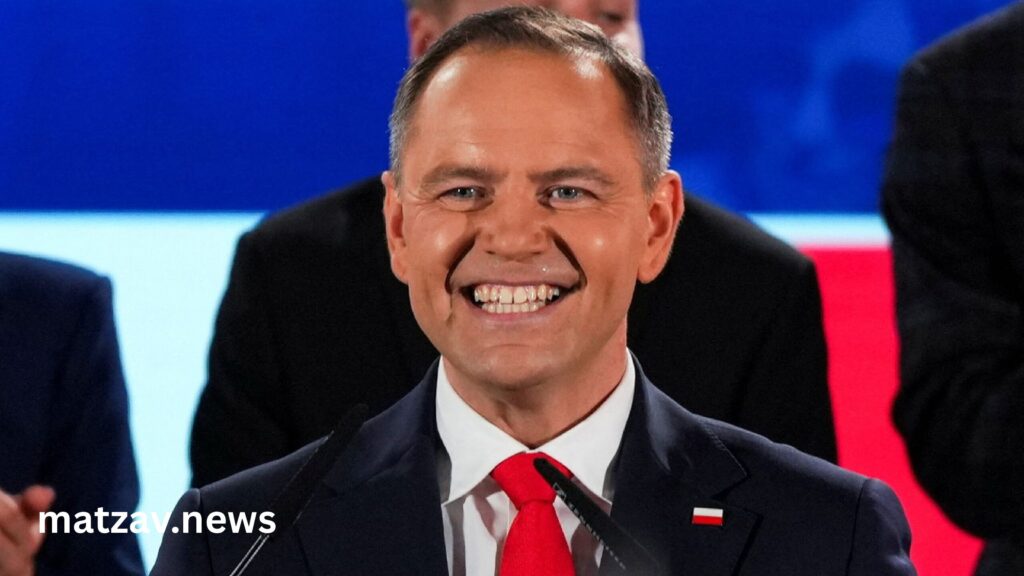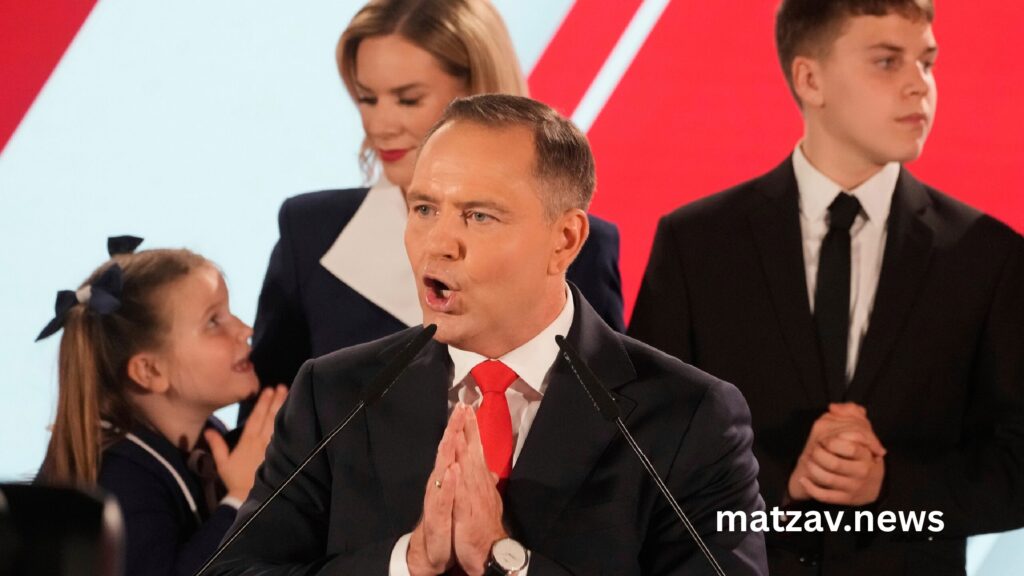In a pivotal moment for Poland, nationalist candidate Krzysztof Nawrocki has clinched the presidency in a tightly contested election. His victory marks a significant turning point in the nation’s political landscape, promising sweeping changes in both domestic and international policy.
Nawrocki’s campaign, centered around sovereignty, traditional values, and strong national identity, resonated with millions of Poles frustrated with liberal policies and foreign influence. With voter turnout at a historic high, the election underscores a growing demand for change across various demographics.
Nawrocki’s Path to Presidency
Early Political Career and Rise to Prominence
Krzysztof Nawrocki began his career as a local politician known for his populist rhetoric and grassroots activism. Over the years, he steadily gained national recognition for his uncompromising stance on national sovereignty and cultural preservation.
Building a National Movement
By aligning with right-wing movements and conservative social groups, Nawrocki built a loyal voter base. His messaging emphasized traditional family values, economic nationalism, and resistance to EU overreach, striking a chord with many rural and working-class voters.
Election Campaign Highlights

Core Policies and Promises
Nawrocki ran on a platform that promised to:
- Limit immigration and strengthen border control.
- Reassert Polish sovereignty over EU directives.
- Reform the judiciary and limit the influence of foreign non-governmental organizations (NGOs).
- Promote traditional education and religious values.
Media Strategy and Public Engagement
Utilizing social media, town halls, and nationalist-themed rallies, Nawrocki reached both younger voters and older conservative audiences. His communication style was direct, emotive, and often confrontational, which energized his base while stirring controversy among opponents.
Read More: Seven dead as two Russian bridges collapse near Ukraine border
Election Results and Voter Turnout
Regional Voting Trends
The election map revealed a stark divide: Nawrocki performed strongly in rural and southeastern regions, while urban areas leaned toward his liberal opponent. However, his ability to mobilize suburban voters proved crucial in securing his overall win.
Record-Breaking Voter Participation
Voter turnout exceeded 70%, signaling a deeply engaged electorate. Many analysts attribute this to Nawrocki’s polarizing platform, which ignited passionate responses on both sides of the political spectrum.
Domestic and International Reactions
Responses from Political Leaders
While Nawrocki’s allies hailed the result as a triumph for national pride, opposition leaders expressed concern over democratic backsliding. Some vowed to challenge aspects of his platform in ParliamentParliament and through civic mobilization.
International Observations and Concerns
European Union officials expressed apprehension about Nawrocki’s Eurosceptic stance, while right-wing parties across Europe celebrated his victory. The United States and NATO extended cautious congratulations, emphasizing the need for continued cooperation and collaboration.
Policy Outlook Under Nawrocki’s Leadership

Domestic Reforms and Governance Strategy
Nawrocki is expected to move quickly on judicial reforms and educational overhauls. Critics warn these changes may undermine democratic norms, while supporters argue they are necessary to reclaim national identity.
Foreign Policy and EU Relations
Tensions with Brussels may escalate as Nawrocki pushes back against EU mandates on migration, environmental policy, and legal oversight. Analysts predict a more isolationist and defensive Polish foreign policy in the years to come.
The Social and Cultural Impact
Shift in National Discourse
Nawrocki’s win is already influencing public debate, with increased visibility for nationalist voices in media and academia. Some see this as a renaissance of Polish pride, while others fear growing intolerance.
Effects on Minority and Civil Rights Groups
Activists are concerned about potential rollbacks in LGBTQ+ rights, press freedom, and minority protections. Nawrocki has pledged to uphold the Constitution, but his rhetoric suggests a more conservative interpretation of civil liberties.
Economic Implications of the New Presidency
Business Community and Market Response
Initial market reactions have been mixed. While some domestic industries welcome Nawrocki’s promise to reduce foreign competition, international investors are wary of regulatory uncertainty and potential EU funding cuts.
Economic Nationalism and Trade Policy
Nawrocki advocates for economic self-sufficiency, supporting local manufacturing and agriculture. This could lead to protectionist measures, redefined trade agreements, and new tensions with international partners.
Challenges Ahead for the New Administration
Bridging a Divided Nation
One of Nawrocki’s most pressing challenges will be national unity. With the country split along ideological, urban-rural, and generational lines, effective governance will require building consensus across deep divisions.
Legal and Constitutional Obstacles3
Some of Nawrocki’s proposed reforms may face legal challenges. The balance of power between the presidency, Parliament, and judiciary will be a key battleground in the months ahead.

Frequently Asked Questions
Who is Krzysztof Nawrocki?
A Polish nationalist politician known for his conservative views and strong emphasis on national sovereignty.
What political party does Nawrocki represent?
He is affiliated with a nationalist-conservative party that emphasizes traditional values and Euroscepticism.
What were Nawrocki’s main campaign promises?
Key promises included immigration control, judicial reform, and promoting traditional education.
How did Nawrocki win the election?
He mobilized support in rural and suburban areas, connecting with voters through direct messaging and nationalistic themes.
What does Nawrocki’s victory mean for Poland’s EU membership?
While not advocating for an exit, he is expected to resist EU mandates and push for greater national autonomy.
How have international leaders reacted?
With caution, some right-wing figures celebrated, while others, especially in the EU, voiced concerns.
Will Nawrocki change the Polish Constitution?
Possibly. He has suggested amendments to reinforce national values, but this would require parliamentary cooperation.
What impact will his win have on minority rights?
There are concerns about potential rollbacks, though Nawrocki claims he will uphold constitutional protections.
How has the public responded to his victory?
The response is polarized; supporters are jubilant, while critics are organizing protests and legal scrutiny.
What are Nawrocki’s economic policies?
His policies focus on economic nationalism, reducing foreign dependency, and prioritizing the development of Polish industries.
Conclusion
Krzysztof Nawrocki’s presidential victory represents a defining moment in Poland’s modern political history. As his administration begins, the nation stands at a crossroads between traditionalism and liberalism, sovereignty and integration, unity and division.
